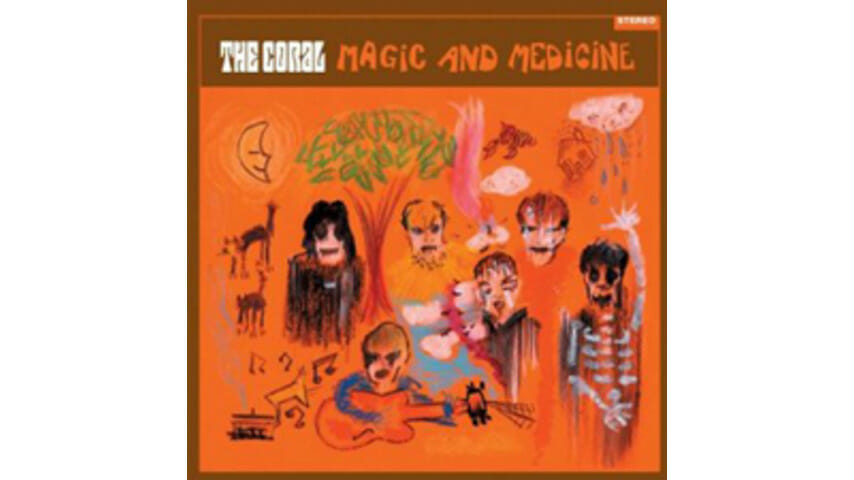The Coral – Magic and Medicine

The fabulous ’60s refuse to die. Try to hearken back to a time before Dylan and Lennon and McCartney re-invented the art of songwriting and hitmakers could still get by with “maybe-baby” and “you-true” rhymes. The Coral remember that time, and it writes the songs to prove it. Magic and Medicine, the followup to the band’s eponymous 2002 debut, finds the new generation of Liverpudlians milking 1965 for all it’s worth. Unfortunately, the vision of 1965 they conjure up is the world of Gerry and the Pacemakers and Freddie and the Dreamers—innocuous, lightweight Hallmark verses set to three chords and a backbeat. I’m telling you now, and I’m telling you right away; I was there, and this shite was bad enough the first time.
-

-

-

-

-

-

-

-

-

-

-

-

-

-

-

-

-

-

-

-

-

-

-

-

-

-

-

-

-

-

-

-

-

-

-

-

-

-

-

-








































